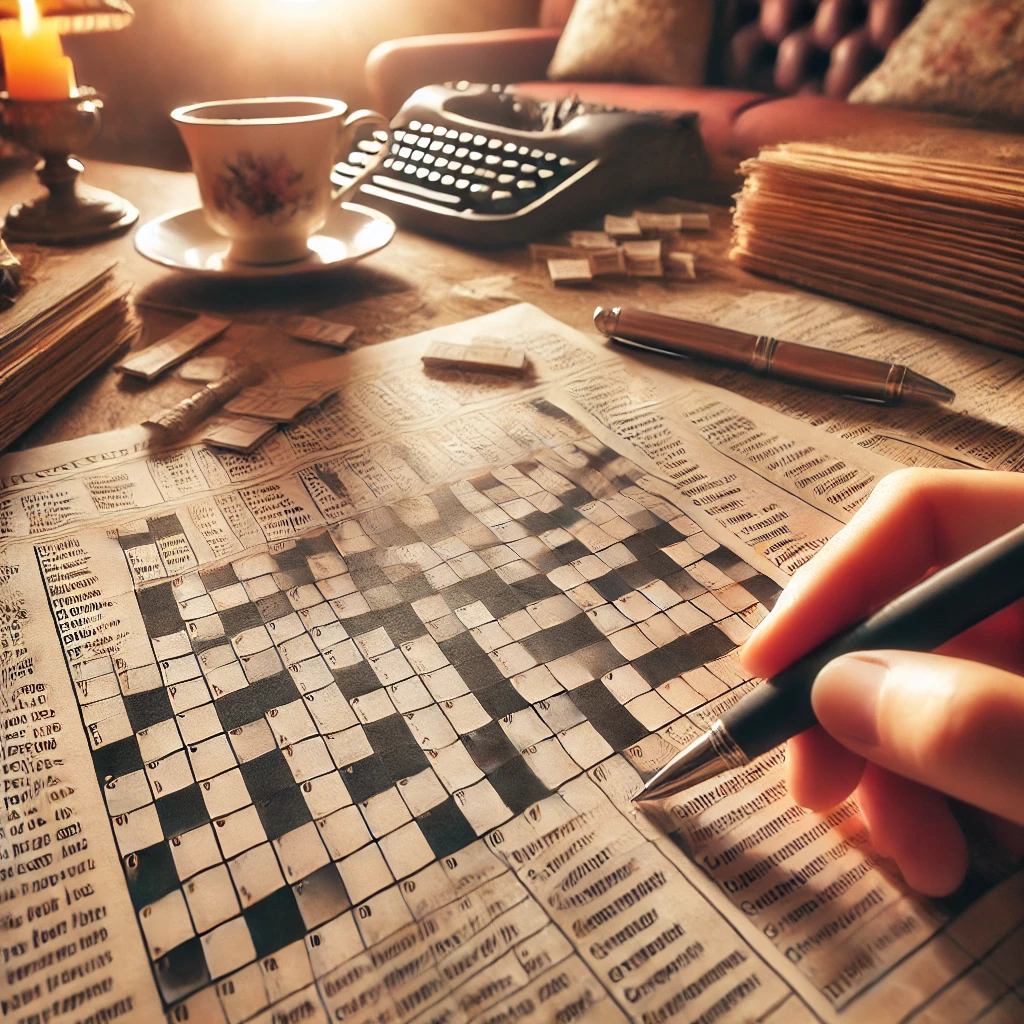
Are you ready to challenge your brain, boost your knowledge, and have fun all at once? Look no further than the classic American game: the crossword puzzle! With its grid of interlocking words and clever clues, the crossword has been an engaging and intellectually stimulating pastime for millions of people worldwide. Whether you’re a seasoned crossword enthusiast or someone just beginning to explore this fascinating game, crosswords offer an enriching experience that combines language, logic, and learning. Let’s delve deeper into the intriguing world of this beloved game.
The Origins of the Crossword Puzzle
The crossword puzzle, like many iconic cultural phenomena, originated in the United States in the early 20th century. The first-ever crossword puzzle was published on December 21, 1913, in the New York World newspaper, created by British journalist Arthur Wynne. Wynne’s creation, a diamond-shaped grid with numbered clues, marked the beginning of what would become one of the world’s most popular puzzles. Over the years, the crossword has evolved, yet its basic principles have remained the same, making it a timeless game that appeals to players across generations.
Wynne’s early crosswords were relatively simple compared to the intricate, challenging puzzles we see today. Initially referred to as a “word-cross,” Wynne’s puzzles featured straightforward clues and a basic grid format. However, due to a typesetting error in one of the early publications, the game’s name was accidentally changed to “crossword”—a name that stuck and soon became iconic.
The crossword’s rapid rise in popularity throughout the United States is a testament to its universal appeal. It wasn’t long before newspapers across the country began featuring their own crossword sections, and by the 1920s, crosswords had firmly taken root in American culture. Since then, crosswords have become a staple of newspapers, puzzle books, and online platforms, captivating people of all ages and backgrounds.
The Structure of a Crossword Puzzle
At its core, a crossword puzzle is a grid-based game where players fill in answers to a set of clues, using both their vocabulary and general knowledge. The grid consists of white and black squares, with the white squares forming the spaces where the answers will go. The clues are divided into two categories: “across” and “down.” These clues guide players in filling the corresponding horizontal and vertical spaces with words that interlock with one another.
The clues in a crossword puzzle range in difficulty, from simple definitions to puns, anagrams, and clever wordplay. For example, a clue might ask for the synonym of a word, reference a famous historical figure, or contain a cryptic phrase that requires careful interpretation. This variety keeps solvers engaged, challenging them to think creatively while testing their knowledge across various subjects.
The beauty of crosswords lies in their ability to blend multiple forms of thinking. Not only do you need language skills to solve the puzzles, but you also need logic, memory recall, and occasionally, a bit of lateral thinking. Every correct answer is a small victory, and each completed puzzle leaves you with a sense of accomplishment.
Mental Benefits of Solving Crosswords
Crosswords are more than just a fun way to pass the time—they also offer a host of cognitive benefits. Regularly solving crossword puzzles helps improve vocabulary, memory, and problem-solving skills. Each puzzle provides an opportunity to learn new words, discover new facts, and broaden your knowledge base. Over time, solvers become more adept at identifying patterns in clues, understanding obscure references, and employing strategies to deduce the correct answers.
One of the primary cognitive benefits of solving crosswords is the mental workout it provides. Engaging in puzzles requires focus, concentration, and critical thinking, which helps keep your brain sharp. Research has shown that activities like crossword solving can help improve cognitive functions, delay age-related memory decline, and even reduce the risk of dementia in older adults. The mental stimulation offered by crosswords makes them a great tool for anyone looking to keep their mind active and engaged.
Moreover, solving crosswords teaches patience and perseverance. Since not all clues are immediately solvable, players must learn to work through difficulties and think outside the box. This kind of persistence is a valuable skill that can be applied beyond puzzles and into real-life situations where problem-solving is needed.
Crosswords in the Digital Age
The rise of technology has transformed the way we access and interact with crosswords. While many traditionalists still enjoy solving puzzles in print, today’s solvers have a variety of digital options at their disposal. Crossword puzzles are now available on mobile apps, websites, and online platforms, making it easier than ever to enjoy the game anytime, anywhere.
These digital formats offer several advantages. Many crossword apps feature daily puzzles, allowing solvers to build a routine around their puzzle-solving habit. Online platforms often provide a range of difficulty levels, from beginner-friendly crosswords to challenging brainteasers that test even the most seasoned players. Some apps even offer timed challenges and leaderboards, encouraging friendly competition among players around the world.
In addition to accessibility, the digital format offers interactive features that enhance the solving experience. Players can receive hints, check their answers in real time, and even access educational tools to learn more about the answers they didn’t know. The convenience of digital crosswords has opened up the game to a broader audience, allowing both casual players and crossword aficionados to engage with puzzles in new and exciting ways.
Crosswords as a Social Activity
Though crosswords are often seen as a solitary activity, they can also be a fun and engaging way to connect with others. Many people enjoy solving crosswords with friends or family members, turning the puzzle-solving process into a collaborative effort. Working together to crack difficult clues can lead to lively discussions, laughter, and a shared sense of achievement.
In recent years, crosswords have also gained popularity in competitive settings. Crossword tournaments, both in-person and online, bring together solvers of all skill levels to compete for prizes and bragging rights. These events foster a sense of community among crossword enthusiasts and provide a platform for solvers to showcase their skills.
Even for those who prefer to solve puzzles alone, the social aspect of crosswords extends beyond the grid. Crossword blogs, forums, and social media groups allow solvers to discuss clues, share tips, and exchange puzzle recommendations. These online communities create a space for crossword fans to connect, learn from one another, and celebrate their shared passion for wordplay.
The Timeless Appeal of Crosswords
What is it about crosswords that has kept people coming back for over a century? Perhaps it’s the combination of challenge and reward—the satisfaction of solving a difficult puzzle and the thrill of learning something new. Or maybe it’s the flexibility of the game itself, which can be tailored to suit players of all ages, skill levels, and interests. From quick five-minute puzzles to complex, themed grids that take hours to complete, crosswords offer something for everyone.
At its core, the crossword puzzle is a perfect blend of entertainment and education. It provides an enjoyable way to pass the time while simultaneously engaging the brain and expanding knowledge. As a game that originated in the United States and has since become a global phenomenon, the crossword remains a cherished part of American culture, a testament to the enduring power of language and logic.
Conclusion
Whether you’re a novice solver or a seasoned crossword expert, there’s no denying the allure of the crossword puzzle. With its rich history, cognitive benefits, and timeless appeal, the crossword offers a unique combination of entertainment and mental stimulation. So, the next time you’re looking for an engaging activity that will challenge your brain and broaden your horizons, grab a crossword puzzle and dive in. You’ll be joining millions of people around the world who have discovered the joy of unraveling word mysteries, one clue at a time.
Click here for more Article : https://socialinfozone.com/
